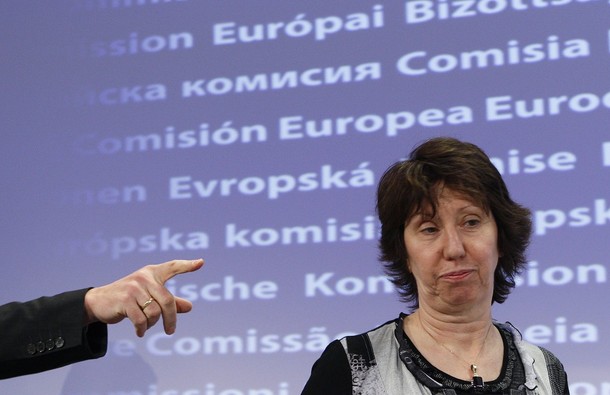
Futurist Joel Kotkin is swimming against the recent American decline tide in forecasting a world where China will still trail the United States as an economic power in 2050. Then again, as Matthew Yglesias points out, Kotkin thinks previous predictions of European preeminence proved "staggeringly off the mark," even though the combined EU economy is now significantly bigger than ours.
Of course, as Yglesias also notes, "aggregate figures don’t tell you very much." The EU is a growing enterprise and adding more countries to the mix makes their combined economy bigger but that doesn’t necessarily translate into more economic power, much less prosperity at the citizen level. And, even if China’s 1.2 billion people manage to overtake the USA’s 300 million in GDP, they’ll still mostly be poor.
Aside from the individual vs. aggregate issue, there are legitimate questions as to how to properly measure even the latter. The relative GDP of the US and EU fluctuates wildly along with the two respective currencies, for example.
Regardless, Kotkin is right that we frequently have periods where American Decline is a hot topic. Two decades back, we had Paul Kennedy’s Rise and Fall of the Great Powers which, while intended as a grand historical overview was greeted as a harbinger of America’s coming fall. This was followed by a series of books and articles wherein the US was going to be overtaken by Japan, Inc. And the rise of China as the world’s preeminent power has been forecast at least as long as my undergraduate days a quarter century ago.
Whether the current hand-wringing is overblown or not, it’s doubtless true that China and Europe are growing economically relative to the US. It’s also true, however, that Europe, at least, continues to feel like it’s living in America’s shadow.
Take, for instance, Leo Cendrowicz‘ "Europe Grumbles About Backseat Role in Haiti," which TIME has been pushing all day to its feed subscribers.
Europe went into response mode just hours after the Haiti earthquake struck two weeks ago, scrambling to organize search and rescue teams, making aid pledges and rushing medical units to the stricken island. But even though European countries have pledged $600 million in aid so far and European teams have been involved in some of the more dramatic rescues of survivors trapped beneath the rubble, some leaders grumble that the continent is being forced to take a back seat in the operations – exacerbating the already high anxiety over whether Europe has lost its status as a world power.
The backbiting has begun in earnest. In Brussels and other capitals, officials bemoan the media images suggesting the U.S. is running the show and Europe is playing a marginal role. They’ve also complained loudly about U.S. heavy-handedness in sending troops to take over Port-au-Prince’s shattered airport. "This is about helping Haiti, not about occupying Haiti," Alain Joyandet, France’s International Cooperation Minister, said after U.S authorities diverted a French medical flight to Santo Domingo. And on Sunday, Guido Bertolaso, the head of Italy’s disaster relief agency, called the U.S.-led efforts a "pathetic" failure that is turning a tragedy into a "vanity show for the television cameras."
There have also been mutterings within Europe that the supposedly new-and-improved, post-Lisbon-Treaty European Union has not made more of an aggressive effort to "fly the flag." At the European Parliament last week, politicians lined up to lambaste the E.U.’s new foreign policy chief, Catherine Ashton, for not jumping on a flight to Port-au-Prince when U.S. Secretary of State Hillary Clinton arrived there. One parliament member from France, Marielle de Sarnez, told her, "Politics is above all about symbols, and that is why I don’t think you should be here, but in Haiti."
And, no, it’s not just unfortunate sniping over who’s getting credit in a major humanitarian crisis.
Europe also felt left out last month at the Copenhagen climate change summit when China and the U.S. hammered out the final deal on their own. Many saw this as a stinging rebuke since Europe had played a major role in putting climate change on the global agenda in the first place. Nor can the continent can’t point to any recent successes on the diplomatic front. E.U. efforts at resolving the split between the Greek and Turkish halves of Cyprus have yet to bear fruit. And the "E.U.-3" countries – Britain, France and Germany – have been unable to resolve the Iran nuclear problem with or without the help of the U.S. and China, despite five years of talks with Tehran.
When the United States starts complaining that it’s not getting enough attention in world affairs, I’ll start to take the decline talk a bit more seriously.
James Joyner is managing editor of the Atlantic Council. Photo credit: Reuters Pictures.
Image: catherine-ashton-haiti.jpg
